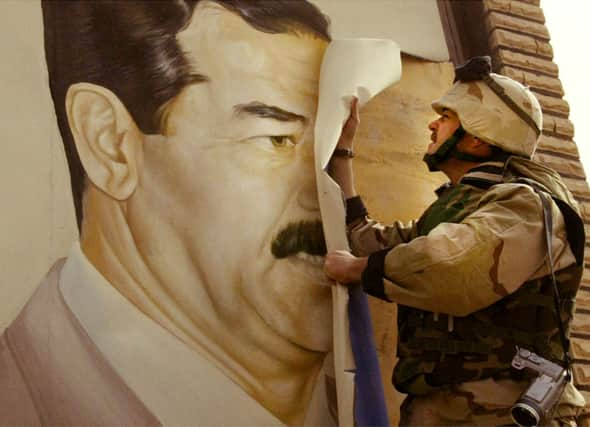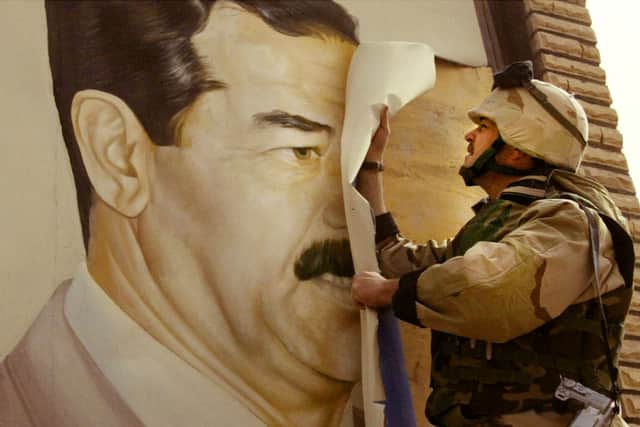Iraq War anniversary: how did the war start - controversy over weapons of mass destruction explained


Monday 20 March 2023 marks the 20th anniversary since the beginning of the highly controversial Iraq War.
At the centre of the war and the invasion was the US and its allies, which included the UK. The conflict, and the justification for launching the invasion into Iraqi territory, was and has continued to be heavily criticised by some in both the US and the UK.
Advertisement
Hide AdAdvertisement
Hide AdThe war in Iraq proved to be a sticking point for President Bush and Blair, who both saw their popularity plummet in the aftermath of the invasion.
But what was the reason behind the beginning of the war, and why was it so controversial? Here's everything you need to know about the Iraq war.
When did the Iraq war begin?
The US invaded Iraqi territory on 20 March 2003. The US-led alliance, which was made up of the US, the UK, Australia, Italy, Spain and Poland, first entered the country to overthrow the leader Saddam Hussein.


What was the cause of the Iraq War?
The basis of the invasion and subsequent war came after the US accused Iraq of holding weapons of mass destruction (WMDs). Some US officials also accused Saddam of supporting the al-Qaeda terrorist group, which claimed responsibility for the 9/11 attack which brought down the Twin Towers in 2001.
Advertisement
Hide AdAdvertisement
Hide AdThe claims made by the US that Iraq had been harbouring WMDs were backed by allies, notably including former British Prime Minister Tony Blair. The UK government published a report known as the 'September Dossier', which was produced as part of an ongoing investigation into the claims that Iraq had access to such WMDs.
The report including allegations that Iraq had access to chemical and biological weapons, as well as claims that the country had reconstituted its nuclear weapons. All of the points made in the initial report have since been proven to be false.
The Chilcot inquiry was launched in 2009 by former PM Gordon Brown. The full report, which looked at the UK's role in the invasion of and war in Iraq, was finally published in 2016 and stated that claims around WMDs were false and Saddam did not pose an immediate threat to the British public.
How did the Iraq war end?
The war in Iraq officially ended on 18 December 2011, when President Barack Obama withdrew the final troops from Baghdad. The withdrawal of troops was first approved by President Bush in 2008.
Advertisement
Hide AdAdvertisement
Hide AdThe US-led alliance gradually withdrew from the country after Saddam had been overthrown. He was hanged on 30 December 2006 after being found guilty of crimes against humanity by an Iraqi court.
The Iraqi Interim Government - a creation of the US alliance - lead that trial and execution of Saddam. Eventually, an agreement was made between the US and the new Iraqi government
By the end of the war, at least 185,000 Iraqi civilians had been killed according to the Iraq Body Count project. However, estimates vary due to unconfirmed reports.
Comment Guidelines
National World encourages reader discussion on our stories. User feedback, insights and back-and-forth exchanges add a rich layer of context to reporting. Please review our Community Guidelines before commenting.
